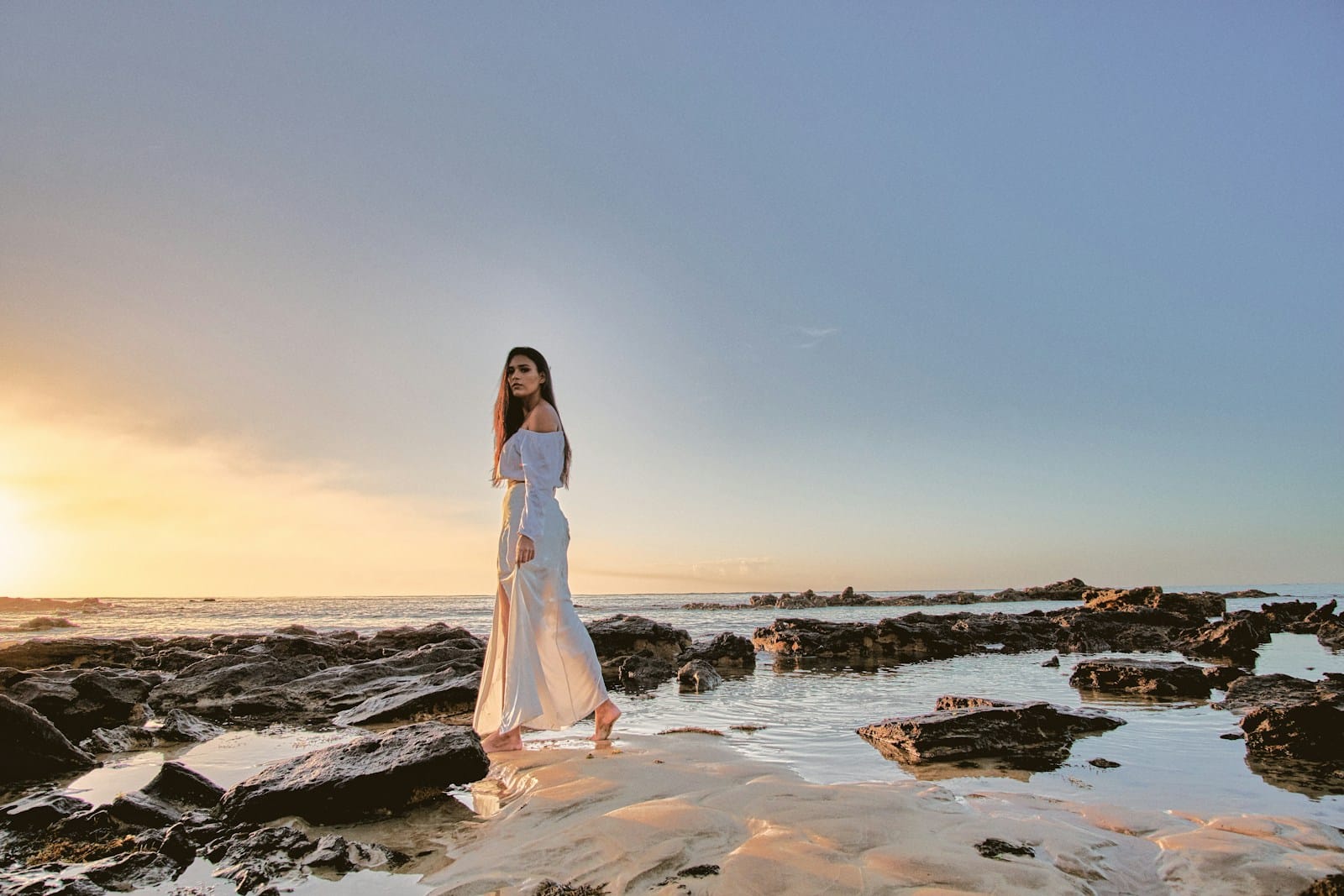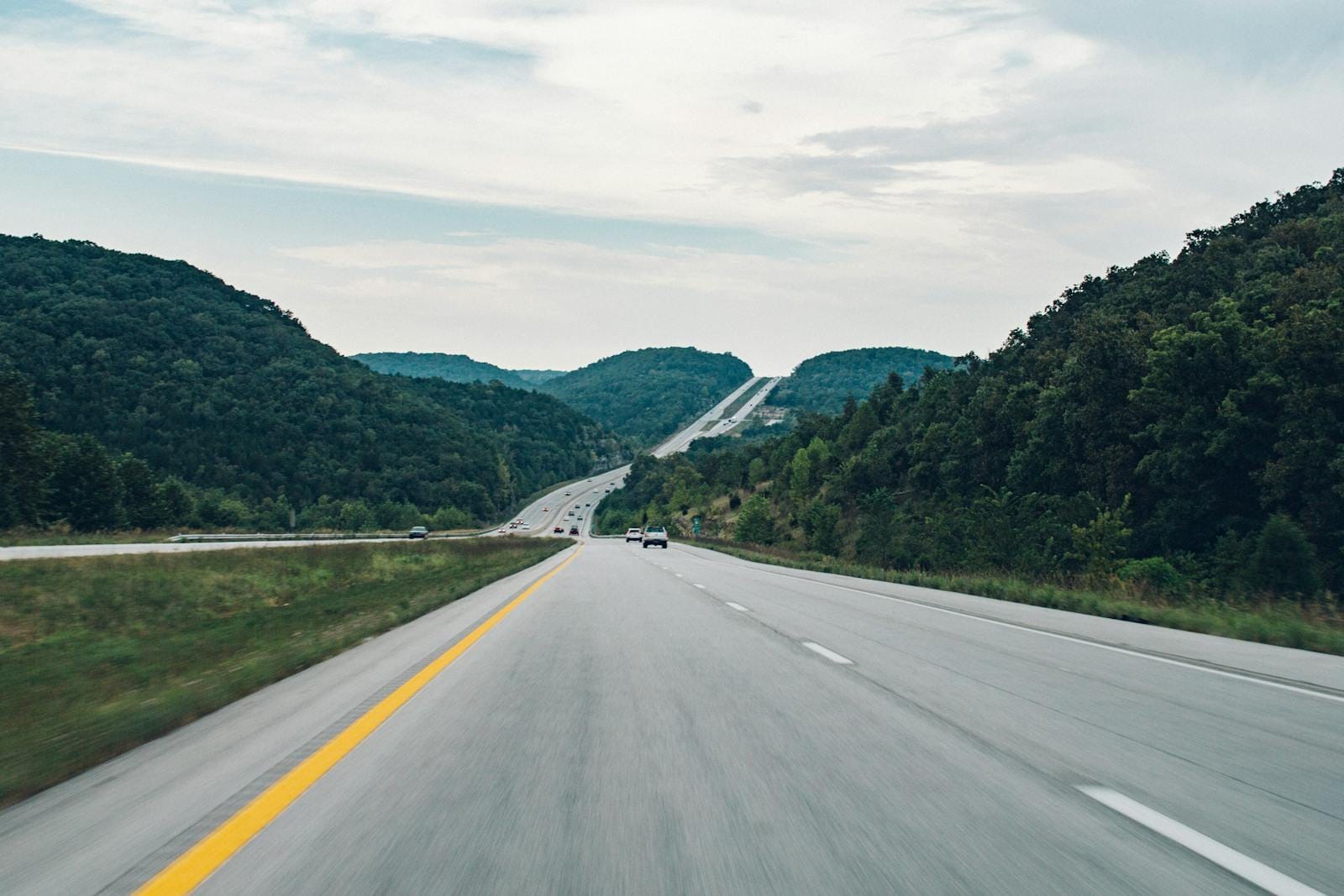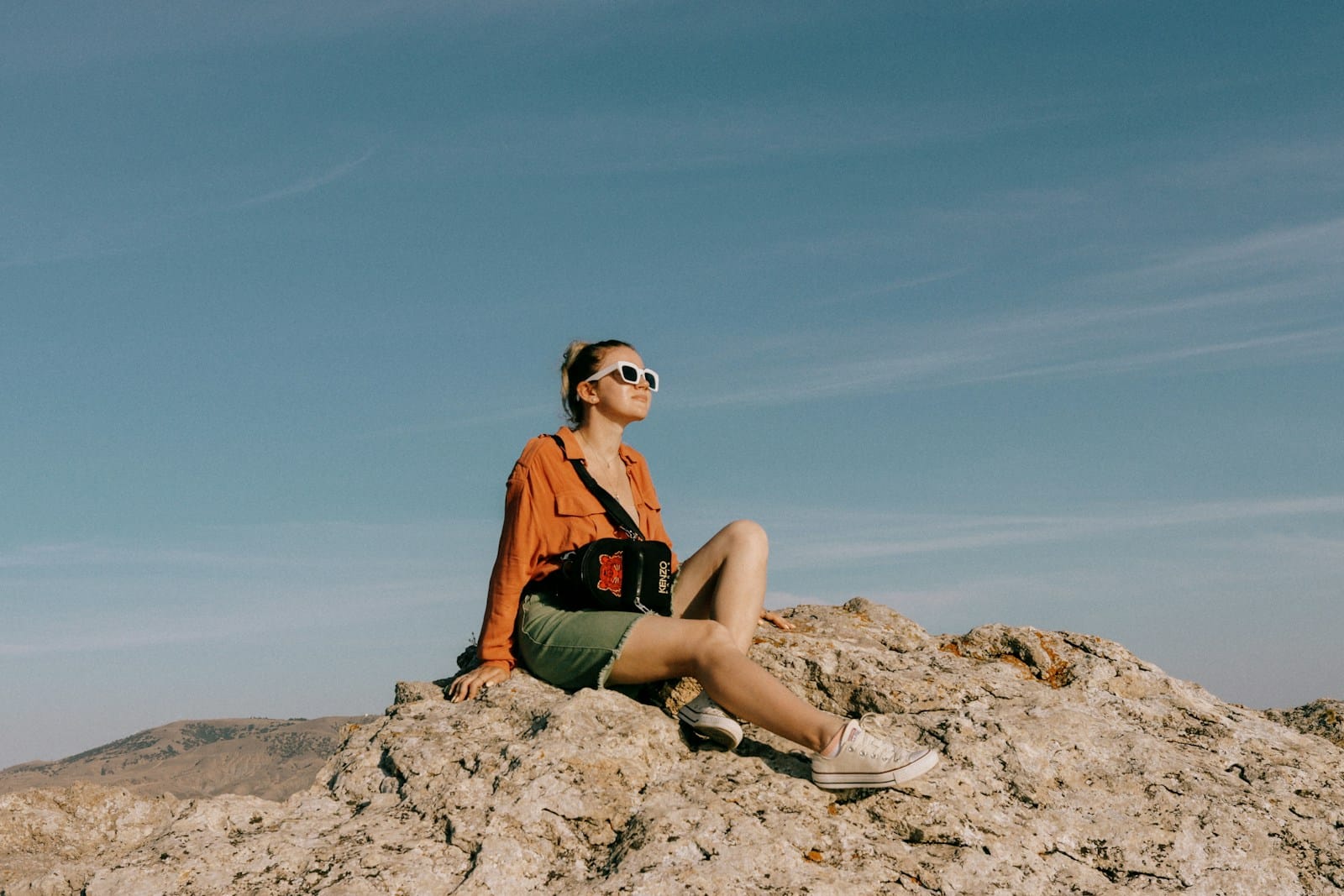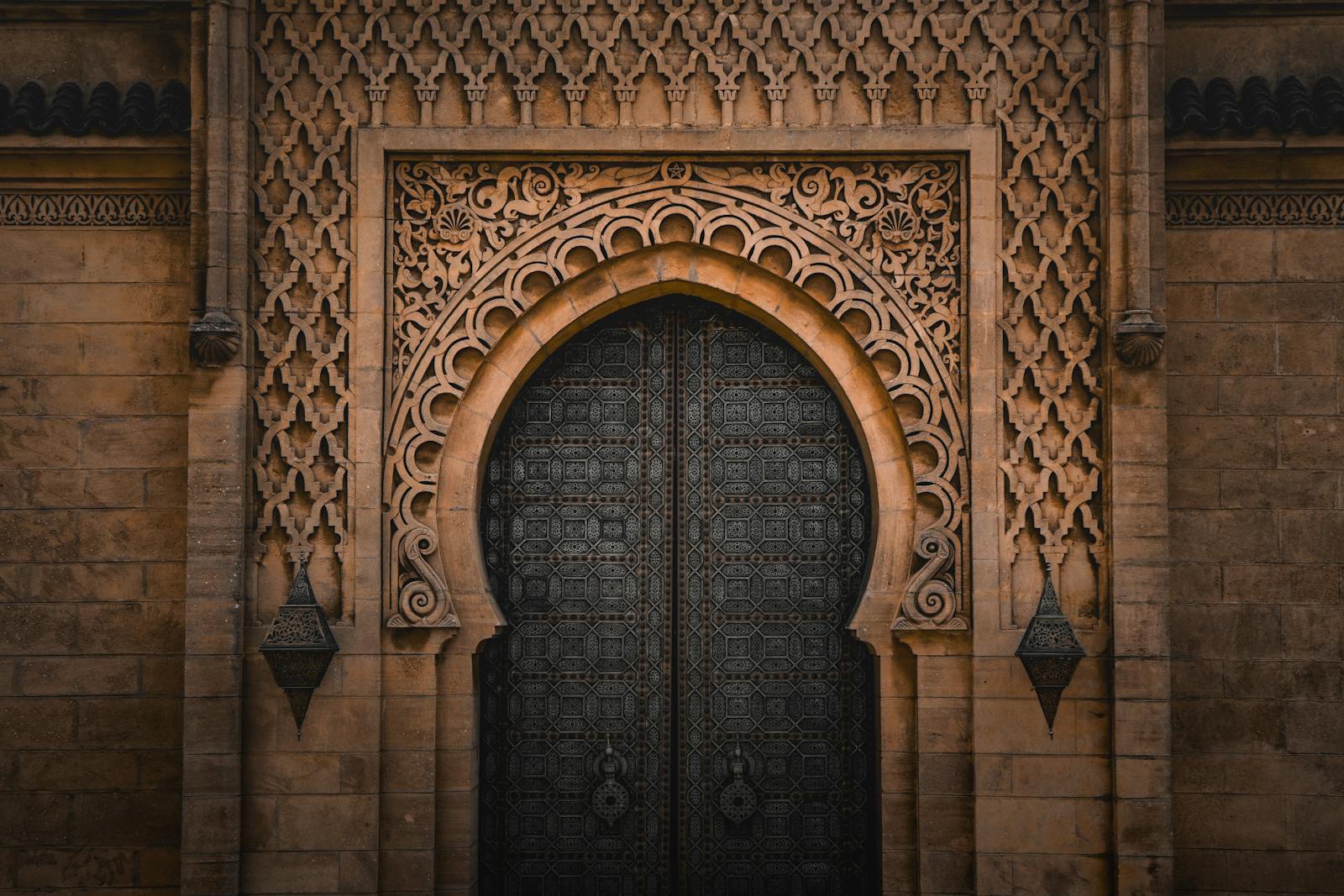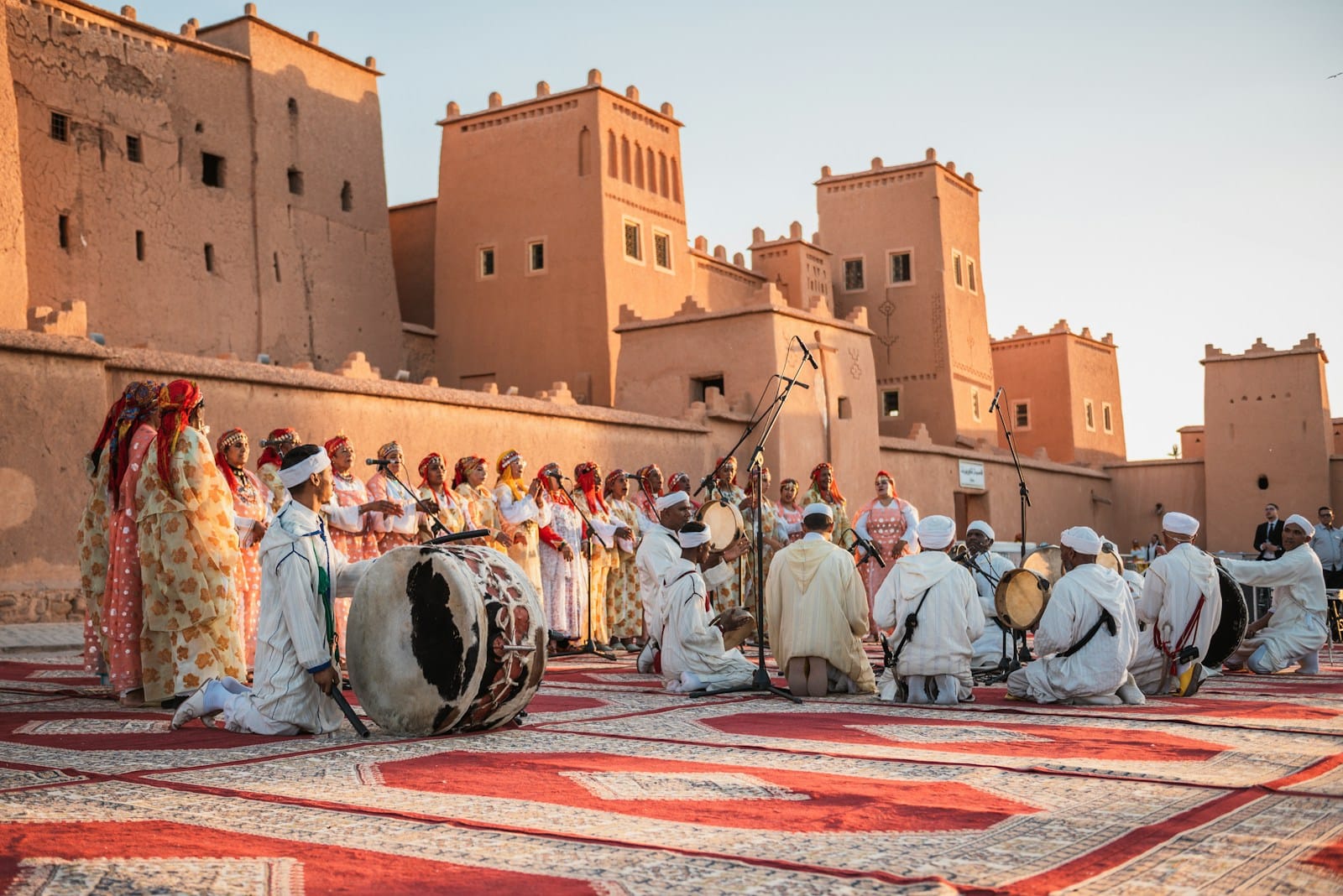Planning a trip to Morocco and wondering if you can enjoy a glass of wine with dinner or a beer after a day of exploring? You’re not alone. As a predominantly Muslim country, Morocco has a complex relationship with alcohol that often confuses visitors. The good news is that yes, you can drink alcohol in Morocco—but there are important legal restrictions and cultural considerations to understand before you order that cocktail.
This comprehensive guide covers everything you need to know about drinking alcohol in Morocco: from legal age requirements and where to buy it, to cultural etiquette and what to expect during Ramadan. Whether you’re planning your first visit or returning to this beautiful North African country, understanding these nuances will help you enjoy your trip while respecting local customs.
Is Drinking Alcohol in Morocco Legal?
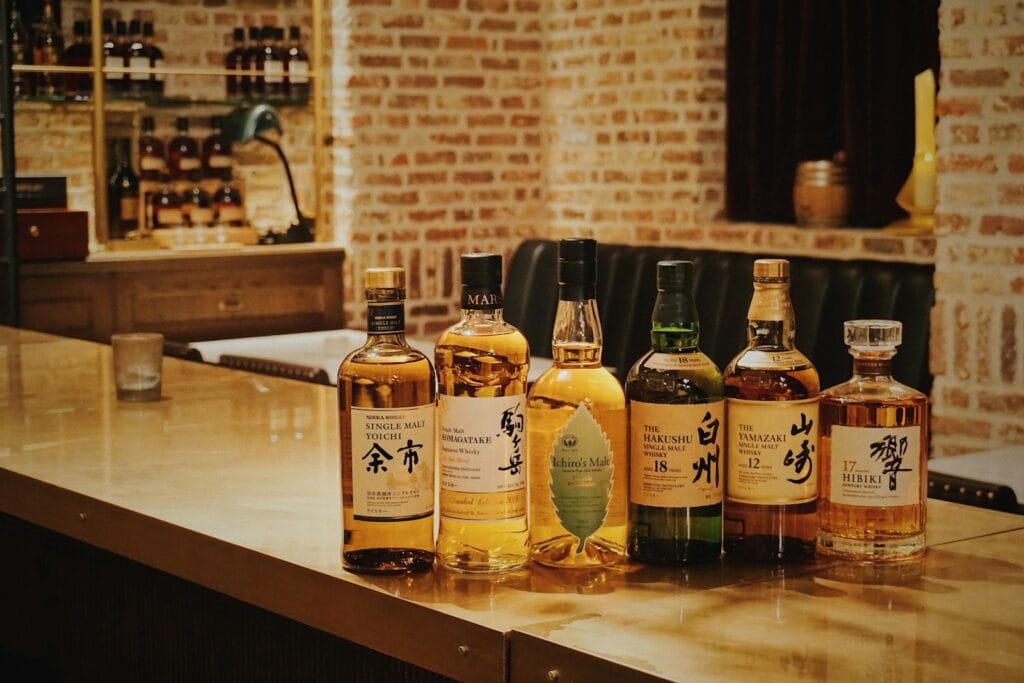
Contrary to what many visitors assume, alcohol consumption is legal in Morocco. However, this legality comes with significant restrictions that differ from what you might be accustomed to in Western countries. Understanding these nuances is essential for enjoying your trip without inadvertently crossing cultural or legal boundaries.
morocco legal drinking age 18
While alcohol is legal to consume, Morocco maintains strict regulations about where and how it can be purchased and consumed. The most important rule to remember is that public consumption of alcohol is prohibited. This means you cannot drink on streets, beaches, parks, or any other public spaces—even if you’re alone.
The legal drinking age in Morocco is 18, though enforcement can vary. Always carry identification when purchasing alcohol, as vendors in tourist areas may request it. During religious holidays, particularly Ramadan, alcohol availability becomes even more restricted, with many establishments temporarily suspending sales out of respect.
Islam and Alcohol: Understanding Cultural Context
To fully appreciate Morocco’s relationship with alcohol, it’s important to understand the cultural and religious context. Islam, the predominant religion in Morocco, generally prohibits alcohol consumption. The Quran describes alcohol as harmful and created by Satan to spread evil and distract believers from prayer.
This religious foundation shapes social attitudes toward drinking throughout the country. While Morocco is more progressive than many Muslim-majority nations regarding alcohol access, there remains a cultural sensitivity around its consumption that visitors should respect.
Respecting Local Customs While Enjoying Your Trip
Most Moroccans do not drink alcohol due to religious beliefs, though practices vary among individuals. As a visitor, you’re not expected to follow Islamic restrictions, but displaying sensitivity to local customs is important. This means:
- Never pressure locals to drink or discuss alcohol if they seem uncomfortable
- Keep your voice down when ordering alcoholic beverages in restaurants
- Avoid displaying alcohol openly or carrying it visibly in public
- Be especially discreet during Ramadan and other religious periods
- Never drink alcohol near mosques or other religious sites
Where Can You Drink Alcohol in Morocco?
While public consumption is forbidden, there are plenty of places where tourists can legally and comfortably enjoy alcoholic beverages in Morocco. Understanding where alcohol is permitted will help you plan your trip and avoid any uncomfortable situations.
Licensed Establishments Where Alcohol is Served
Hotels & Resorts
Most international hotels and many riads (traditional Moroccan houses) have bars or restaurants that serve alcohol. These establishments cater primarily to tourists and provide a comfortable environment for drinking.
Restaurants
Higher-end restaurants, particularly those in tourist areas, often serve alcohol with meals. However, not all restaurants offer alcoholic beverages, so it’s best to check in advance.
Bars & Nightclubs
Dedicated bars and nightclubs exist in major cities like Marrakech, Casablanca, and Tangier. These venues typically cater to tourists and expatriates rather than locals.
Urban vs. Rural Availability
The availability of alcohol varies significantly between urban and rural areas in Morocco. Major cities and tourist destinations offer much easier access to alcoholic beverages than smaller towns and villages. In general:
Inside the Medina vs. Outside
Within the historic medinas (old city centers), alcohol is typically harder to find. Most establishments serving alcohol are located in the newer parts of cities, outside the medina walls. This reflects the traditional nature of the medina areas and their cultural significance.
Tourist Areas vs. Local Neighborhoods
Areas frequented by tourists have significantly more options for purchasing and consuming alcohol than predominantly local neighborhoods. This separation helps maintain cultural respect while accommodating visitor preferences.
Where to Buy Alcohol in Morocco
If you prefer to purchase alcohol to enjoy in your accommodation rather than at a bar or restaurant, several options are available. However, buying alcohol in Morocco works differently than in many Western countries, with specific locations and sometimes restricted hours.
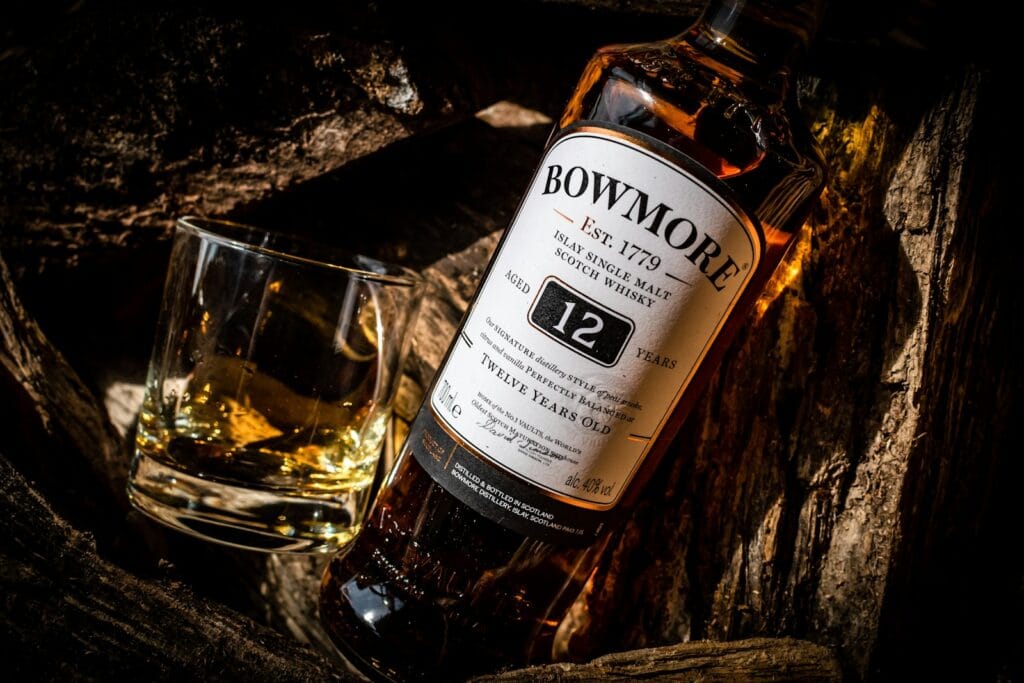
Purchasing Options for Tourists
Supermarkets
Large supermarket chains like Carrefour and Marjane sell alcohol in major cities. Look for a separate room or section with its own entrance, as alcohol is kept apart from other products. These sections typically have their own cashiers and may have security personnel.
Specialty Liquor Stores
Dedicated liquor stores exist in urban areas and tourist destinations. These shops often have a wider selection than supermarkets but may be less obvious from the street. Ask your hotel staff for directions to the nearest one.
Duty-Free Shops
If you’re flying into Morocco, airport duty-free shops offer another option to purchase alcohol. However, note that you’re limited to bringing in one liter of alcohol per person when entering the country.
Shopping Hours and Restrictions
Alcohol sales in Morocco follow specific hours and may have additional restrictions:
- Most liquor stores and supermarket alcohol sections operate from approximately 10:00 AM to 8:00 PM
- Alcohol sales are often suspended on Fridays (the Muslim holy day) during prayer times
- During Ramadan, many stores stop selling alcohol entirely or significantly reduce their hours
- Some stores may require you to show your passport to prove you’re a tourist
Moroccan-Produced Alcohol: What to Try
Despite its cultural restrictions on alcohol, Morocco has a surprisingly robust domestic alcohol production industry. Local wines, beers, and spirits offer visitors a chance to taste uniquely Moroccan flavors while supporting local businesses.
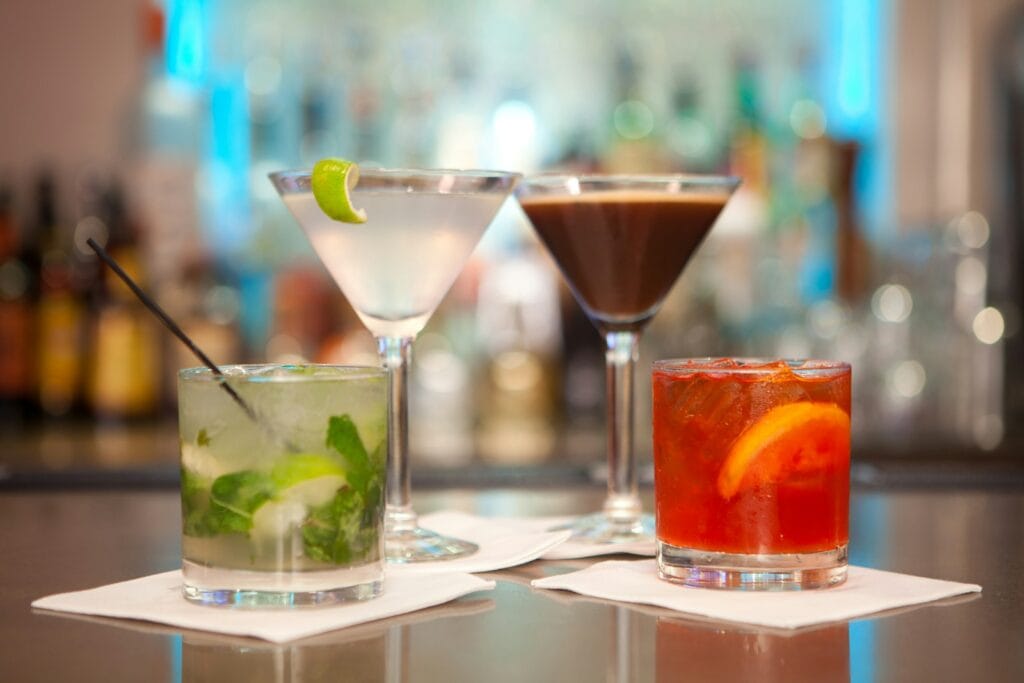
Moroccan Wines
Wine production in Morocco dates back to the French colonial period and continues today in regions with suitable climates. Moroccan wines have been gaining international recognition for their quality in recent years.
Wine Regions
The main wine-producing regions in Morocco include:
- Meknes region (central Morocco)
- Benslimane (near Casablanca)
- Essaouira region (western coast)
- Guerrouane (Middle Atlas)
Wine Varieties
Look for these distinctive Moroccan wine styles:
- Vin Gris (Gray Wine) – A Moroccan specialty lighter than rosé
- Red wines – Often made from Carignan, Cinsault, and Grenache grapes
- White wines – Typically produced from Clairette and Muscat varieties
- Rosé – Becoming increasingly popular and well-crafted
Moroccan Beers
Morocco produces several domestic beer brands that are widely available in licensed establishments. These refreshing lagers are perfect after a day exploring Morocco’s vibrant cities or desert landscapes.
Casablanca
The most popular and widely regarded Moroccan beer. This premium lager has a clean, crisp taste and is often considered the best quality local beer.
Flag Spéciale
A pilsner-style beer with a slightly stronger flavor profile than Casablanca. It’s widely available throughout the country.
Stork
A light lager with a mild taste, Stork is another common option you’ll find in many restaurants and bars catering to tourists.
Plan Your Perfect Moroccan Adventure
Mahia: Morocco's Traditional Spirit
For those interested in trying something truly unique, seek out Mahia, Morocco’s traditional spirit. This clear, fig-based brandy has historical ties to Morocco’s Jewish community and offers a glimpse into the country’s diverse cultural heritage.
Mahia (meaning “water of life”) is typically distilled from figs and often flavored with anise. With an alcohol content of around 80 proof, it packs a punch similar to grappa or eau de vie. While less commonly found in commercial settings, some specialty stores and high-end hotels may offer it.
Wine Tasting Experiences in Morocco
For wine enthusiasts, Morocco offers some excellent opportunities to visit vineyards and participate in wine tastings. These experiences provide not only a chance to sample local wines but also to learn about Morocco’s unique winemaking history and techniques.
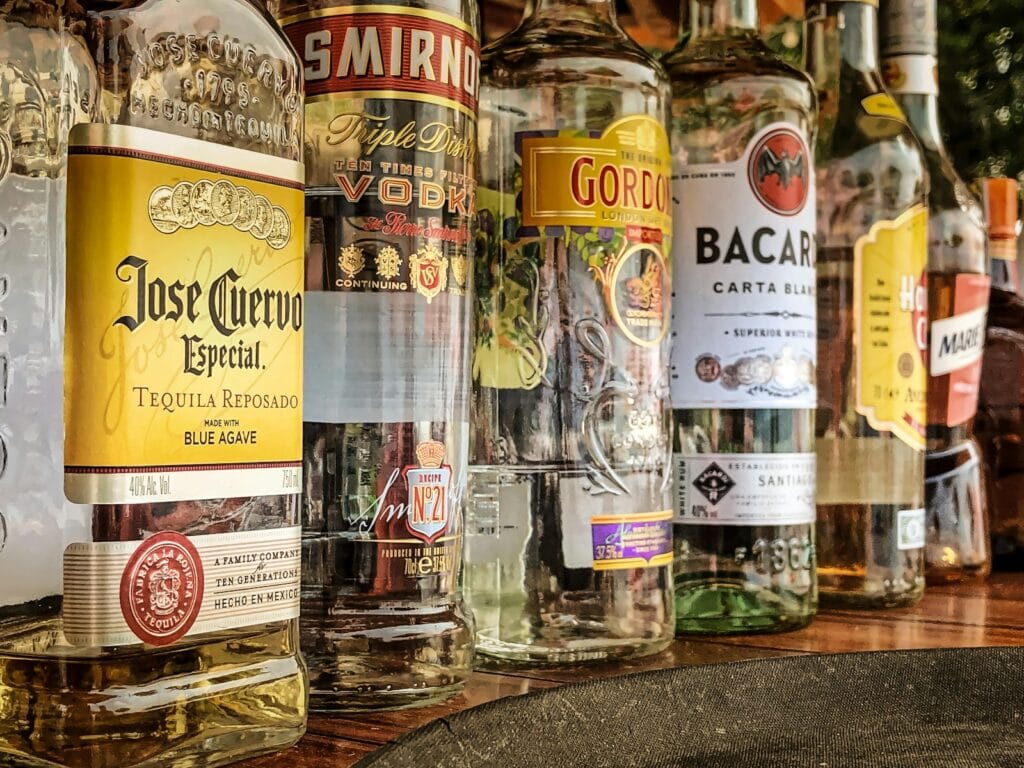
Popular Wine Regions to Visit
Several regions in Morocco welcome visitors for wine tours and tastings:
Château Roslane
Located in the Meknes region, Château Roslane is Morocco’s first wine château and offers professional tastings and tours of their state-of-the-art facilities. Their wines have won international awards.
Val d’Argan
Near Essaouira on the Atlantic coast, this winery was founded by a French winemaker and produces organic wines influenced by both Moroccan and Rhône Valley traditions.
Les Celliers de Meknès
One of Morocco’s largest wine producers, they offer tours of their extensive vineyards and production facilities, with tastings of their diverse wine portfolio.
Drinking Alcohol in Morocco During Ramadan
Ramadan, the holy month of fasting in Islam, significantly impacts alcohol availability and consumption norms in Morocco. During this period, which shifts dates each year following the Islamic lunar calendar, cultural sensitivity becomes even more important for visitors.
What to Expect During Ramadan
During Ramadan, Muslims fast from dawn until sunset, abstaining from food, drink, and other physical needs. This religious observance creates a different atmosphere throughout Morocco:
- Many bars and alcohol-serving restaurants close completely for the month
- Establishments that remain open often stop serving alcohol or serve it only to non-Muslim tourists
- Supermarket alcohol sections may reduce hours or close entirely
- Some high-end hotels continue serving alcohol discreetly to guests, typically in secluded areas
- Public consumption becomes even more taboo than usual
Respectful Alternatives
Ramadan offers a unique opportunity to experience Moroccan culture at its most authentic. Consider embracing local traditions rather than seeking alcohol during this time:
- Try the special Ramadan foods served at iftar (breaking of the fast)
- Enjoy Morocco’s excellent fresh juices and non-alcoholic beverages
- Experience the festive evening atmosphere when families gather after sunset
- Sample traditional Moroccan mint tea, often called “Berber whiskey” (though it contains no alcohol)
Alcohol in the Moroccan Desert
Many travelers to Morocco include a desert excursion in their itinerary, whether it’s an overnight stay in the Sahara or a day trip to the Agafay Desert near Marrakech. If you’re planning such an adventure, you might wonder about alcohol availability in these remote settings.
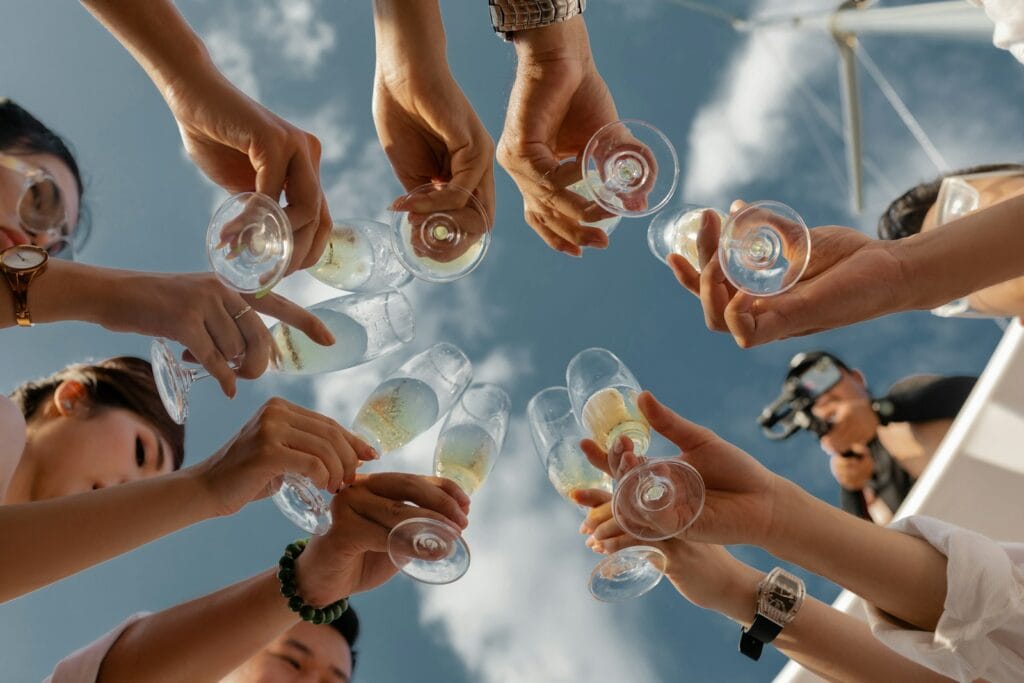
Desert Camp Policies
Alcohol availability in desert camps varies widely depending on the type of camp and operator:
Luxury Desert Camps
Higher-end desert camps often provide alcoholic beverages as part of their service. These luxury operations understand that many international tourists expect this option and make arrangements accordingly. However, service is typically discreet and respectful of local cultural norms.
Standard Desert Camps
More basic or traditional desert camps typically do not serve alcohol. These authentic experiences focus on Berber culture, which generally does not include alcohol consumption. Instead, you’ll likely be offered traditional mint tea and other non-alcoholic beverages.
Planning Ahead
If enjoying a drink under the desert stars is important to you, consider these tips:
- Ask your tour operator in advance about their alcohol policy
- Some camps allow you to bring your own alcohol if purchased beforehand
- Purchase any alcohol in major cities before departing for the desert
- Be extremely discreet and respectful if consuming alcohol in the desert
- Never drink alcohol in public areas of the camp where it might offend local staff
Responsible Drinking in Morocco: Practical Tips
Enjoying alcoholic beverages in Morocco requires a thoughtful approach that balances your preferences with respect for local customs. These practical tips will help you navigate drinking in Morocco responsibly and avoid potential issues.
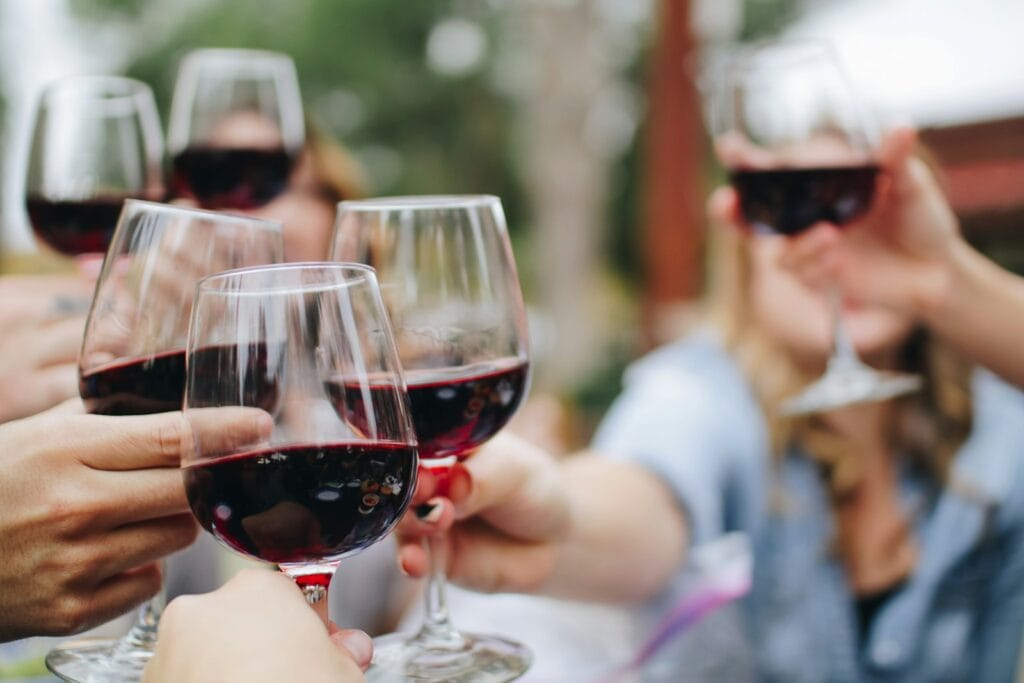
Cultural Etiquette
- Keep consumption discreet and moderate, especially in public-facing areas
- Never drink on streets, in parks, or other public spaces
- Avoid visible intoxication, which is considered highly disrespectful
- Don’t offer alcohol to Moroccans unless you know they drink
- Be aware that hotel balconies facing public streets are considered public spaces
- Respect staff who may not want to handle alcohol due to religious beliefs
Safety Considerations
Beyond cultural respect, safety should be a priority when drinking in an unfamiliar country:
- Arrange transportation back to your accommodation before drinking
- The legal blood alcohol limit for driving in Morocco is extremely low (0.02%)
- Drink only from sealed bottles or at reputable establishments
- Stay hydrated, especially in Morocco’s hot climate where alcohol effects can be amplified
- Keep track of your belongings and maintain awareness of your surroundings
- Have your hotel address written down in case you need assistance returning
Can I bring my own alcohol into Morocco?
Yes, but with limitations. Tourists are permitted to bring one liter of alcohol (wine, beer, or spirits) per person when entering Morocco. Make sure to declare it at customs if asked. Anything beyond this limit may be confiscated or subject to duty fees.
What happens if I'm caught drinking in public in Morocco?
Public consumption of alcohol is illegal in Morocco and can result in fines or even detention, particularly if combined with disorderly behavior. While enforcement may vary, it’s never worth the risk. Always consume alcohol only in licensed establishments or private accommodations.
Are there any alcohol-free zones in Morocco?
Yes. Alcohol is generally not available within the old medinas (historic city centers), near mosques or other religious sites, and in more conservative rural areas. Additionally, some smaller towns may not have any establishments licensed to sell alcohol.
Navigating Morocco's Alcohol Culture with Expert Guides
For many travelers, the easiest way to navigate Morocco’s complex alcohol regulations while still enjoying the experience is to book with reputable tour operators. Professional guides understand both the legal requirements and cultural nuances, helping you avoid potential missteps.
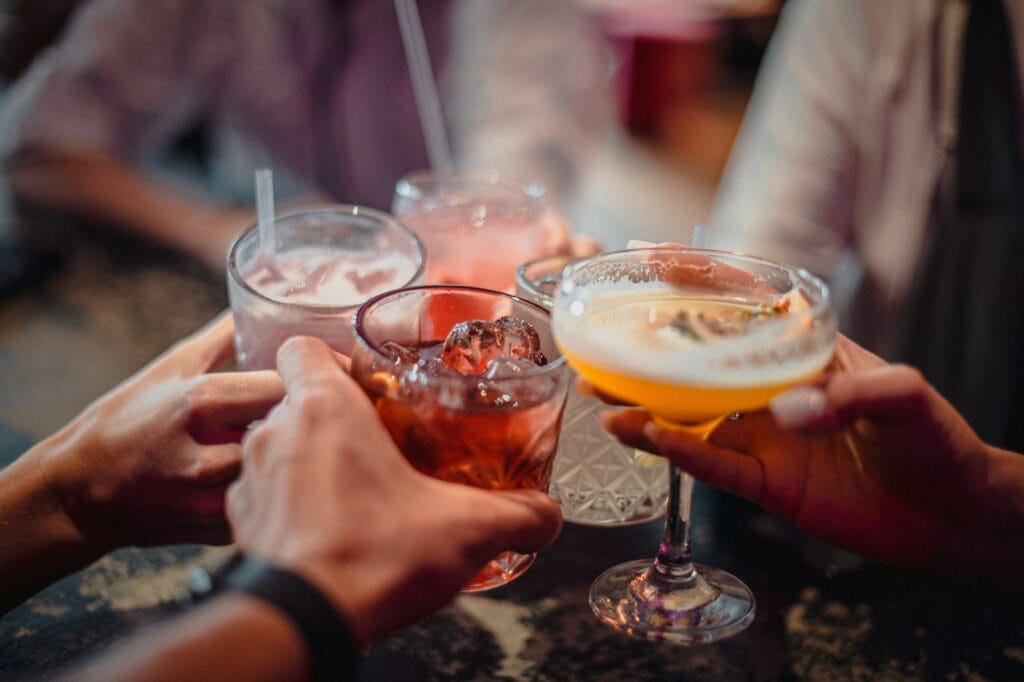
Benefits of Guided Tours for Alcohol Enthusiasts
Booking with established tour operators offers several advantages for travelers interested in experiencing Morocco’s alcohol culture:
- Access to accommodations that serve alcohol appropriately
- Insider knowledge about the best wine bars and restaurants
- Potential for special experiences like private vineyard tours
- Transportation arranged so you don’t need to worry about driving
- Cultural guidance to ensure respectful behavior
- Assistance with translation and purchasing if needed
Beyond Alcohol: Moroccan Beverage Alternatives
Morocco offers a wealth of delicious non-alcoholic beverages that are worth exploring during your visit. These drinks are not only culturally significant but also refreshing alternatives, especially when traveling in areas where alcohol is less available.
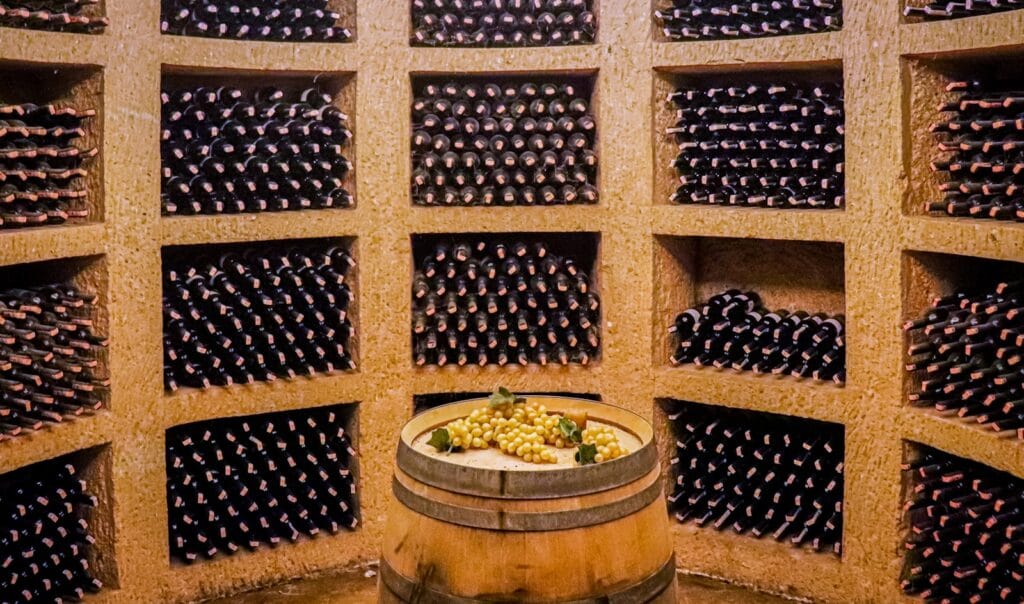
Traditional Moroccan Beverages
Moroccan Mint Tea
Often called “Berber whiskey,” this sweet mint tea is Morocco’s national drink. The ceremonial preparation and serving of tea is an art form and social ritual. It’s traditionally made with green tea, fresh mint leaves, and plenty of sugar.
Fresh Fruit Juices
Morocco’s markets and juice stands offer incredible fresh-squeezed options. Orange juice is particularly excellent, but you’ll also find avocado, apple, strawberry, and pomegranate juices depending on the season.
Almond Milk with Orange Flower Water
This refreshing drink combines ground almonds with orange flower water and sugar for a uniquely Moroccan flavor. It’s especially popular during Ramadan for breaking the fast.
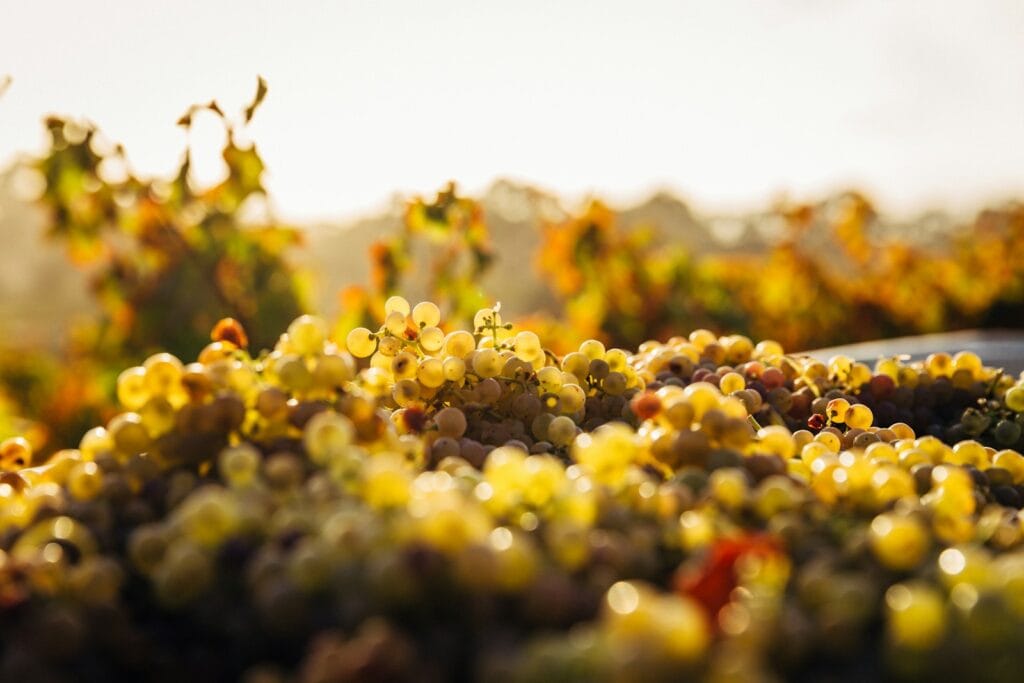
Enjoying Morocco Responsibly: Final Thoughts
Navigating alcohol consumption in Morocco requires balancing personal enjoyment with cultural respect. While alcohol is legally available in many places, understanding and respecting the cultural context will enhance your experience and help you avoid potential issues.
Remember that Morocco offers countless incredible experiences beyond drinking—from exploring ancient medinas and stunning desert landscapes to savoring world-class cuisine and engaging with warm, hospitable locals. Whether you choose to enjoy Morocco’s local wines and beers or opt for traditional non-alcoholic beverages, approaching the country with cultural sensitivity and an open mind will make for a more rewarding journey.
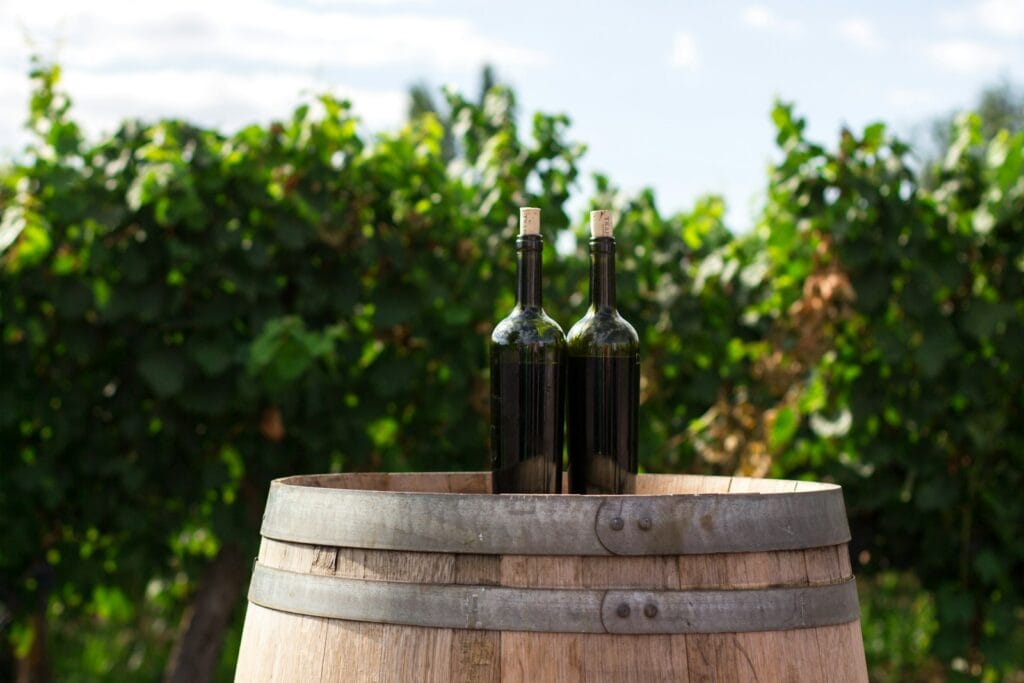
“Travel is about the gorgeous feeling of teetering in the unknown.” – Anthony Bourdain
What to Wear in Morocco: Your Complete Travel Dress Code Guide Understanding the Morocco Dress Code: Culture, Modesty, and Respect...
Read More → Transportation in Morocco: 7 Amazing Ways I Navigate This Country
6 July 2025
Transportation in Morocco: 7 best Ways I Navigate This Country “Discover the diverse and surprising methods of getting around Morocco,...
Read More → Moroccan Musical Instruments
6 July 2025
morocco instrument sound Traditional Moroccan Music Instruments: Traveler’s Sound Guide Morocco is not just a visual feast it’s a sonic...
Read More → is morocco safe for women
7 July 2025
Is Morocco Safe for Women? Yes, Morocco is safe 7 Tips for Solo Travel Learn More Morocco Safety Guide for...
Read More → Rabat North Africa: A Complete Travel Guide to Morocco’s Capital City
7 July 2025
Things to Do in Rabat: The Best of Morocco’s Capital Rabat, Morocco’s capital, offers a captivating blend of history and...
Read More → Ouarzazate Morocco Travel Guide: Weather Guide & Top Travel Tips
8 July 2025
Ouarzazate Morocco: 10 Cultural Gems Explored Nestled between the majestic High Atlas Mountains and the endless expanse of the Sahara...
Read More → 
